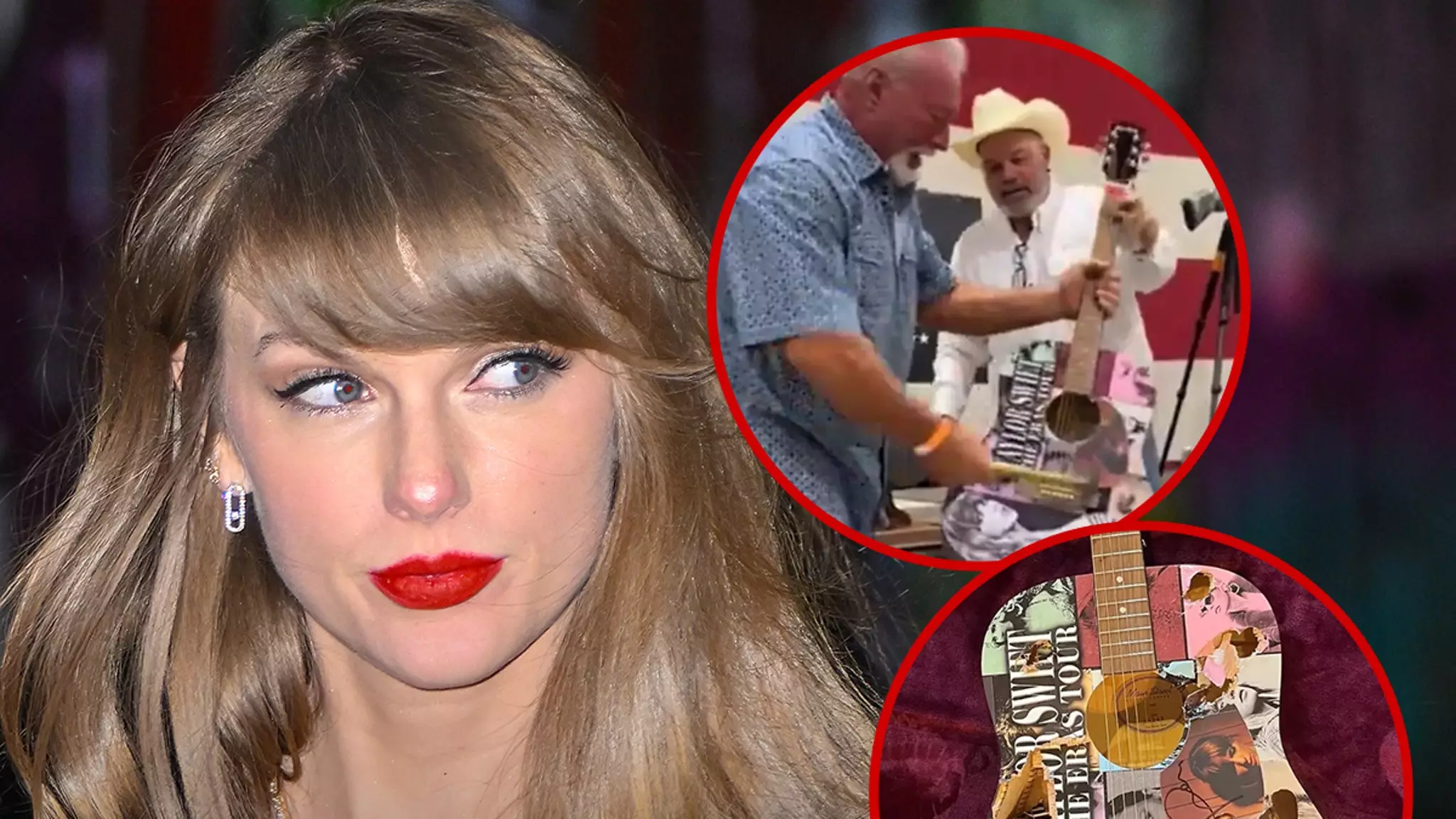In an age where social media amplifies every action, the incident involving Gary Estes, a Texas resident who auctioned a signed Taylor Swift guitar for $4,000 only to destroy it moments later, has ignited a firestorm of reactions. Initially perceived as a stark commentary on celebrity influence and political endorsements, this bizarre act raises questions about the intersection of humor, personal beliefs, and the backlash celebrities face for their political inclinations. The act of smashing the guitar wasn’t merely a shocking stunt; it was a reflection of a much larger discourse about fandom, loyalty, and the divisive nature of modern politics.
Estes has maintained that his actions were light-hearted and unmalicious, claiming it was all done for the sake of a joke. His assertion that he was merely participating in a comedic moment rather than launching a personal attack on Swift lends insight into the ambiguity surrounding humorous endeavors in today’s climate of often-heightened political sensitivities. The auctioneer, Craig Meier, corroborated Estes’s claim by describing the event as a playful jest aimed at Taylor Swift’s political musings. However, this presented outcome prompts further exploration about whether humor can transcend the boundaries of celebrity critiques without swimming in troubled waters.
Despite the comedic cover, it is impossible to overlook the political implications associated with the act. Following Taylor Swift’s endorsement of Vice President Kamala Harris, a segment of her fanbase, particularly those with opposing political sentiments, reacted vehemently. Estes’s act, therefore, is not just an isolated incident but rather becomes emblematic of a larger societal rift where personal opinions regarding public figures and their political engagement can lead to drastic measures, such as the destruction of merchandise. The guitar-smashing was more than a joke; it was a symbol of dissent borne out of the political divide.
The outrage and responses to Estes’s actions have shone a light on the broader issue of celebrity backlash in political contexts. Taylor Swift, who previously enjoyed immense popularity, has found herself the target of criticism from fans who disagree with her political views. Events like Estes’s guitar destruction serve as a vehicle for that criticism, particularly among those who feel betrayed by their idols straying into political discourse. The social media response, including public burnings of Swift’s merchandise, underscores a significant cultural phenomenon where personal identity and political beliefs intersect fervently.
As the dust settles, the shattered guitar, which is now available on eBay, represents more than just a destroyed object. It encapsulates the explosive intersection between absurdity and political engagement, encouraging a conversation about how celebrities can impact their audiences. As for Gary Estes, his act will likely remain a controversial reference point in discussions about the responsibilities of public figures and the expectations of their fans. This incident serves as a microcosm of our culture, where humor can rapidly devolve into conflict, and where the implications of our support—or dissent—can reverberate far beyond a single joke.

